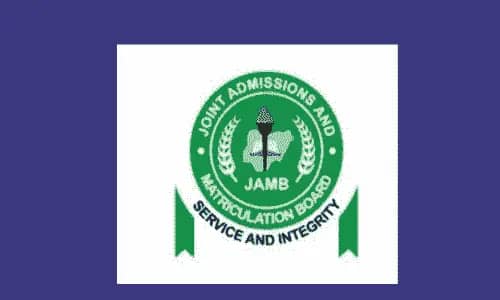Welcome to the Arewacampus blog, where we help students pass their exams with flying colours. This article is about the Jamb areas of concentration for Igbo. We outlined the topic to focus on If you are preparing for the 2025/2026 JAMB Igbo exam.
Whether you are a seasoned student or just starting, our guide provides all the essential information you need to excel.
The Joint Admissions and Matriculation Board (JAMB) exam is an important test for those seeking admission into Nigerian tertiary institutions.
The Igbo section of the exam holds significant weight, and thorough preparation is essential to achieving a good score. In this guide, we explore the JAMB areas of concentration for Igbo to help you direct your studies and improve your chances of success.
Areas of Concentration for the JAMB Igbo Exam
Section A: Language (Asụsụ)
– Essay Writing (Edemede): Develop your skills in writing well-structured essays in Igbo.
– Comprehension (Aghọta azị): Understand and interpret written passages effectively.
– Sounds and Sound Patterns (Ụda asụsụ na Usoro ụda asụsụ): Focus on phonetics and the sound patterns of the Igbo language.
– Spelling and Spelling Rules (Nsupena Iwu Nsupẹ): Learn the correct spelling of Igbo words and understand the rules governing them.
Igbo Orthography (Mkpụrụedemede Igbo): Familiarize yourself with the standard writing system of Igbo.
– Dialect and Standard Igbo (Olundị/Olumbana Igbo Izugbe): Understand the differences between dialects and the standard Igbo language.
– Word Derivation (Usoro Mmụba okwu n’Igbo): Study the methods of word formation in Igbo.
– Grammar (Ụtọ asụsụ): Master the grammatical rules and structures of Igbo.
-Translation (Ntụgharị): Practice translating Igbo sentences into English and vice versa.
– Written Literature (Agụmagụ Ederede): Focus on written works and their analysis.
Section B: Literature (Agụmagụ)
– Literary Devices (Atụmatụ okwu): Identify and analyze common literary devices in Igbo literature.
– Oral Literature (Agụmagụ Ọnụ/Agụmagụ Ọdịnala): Explore traditional oral literature and its cultural significance.
– Written Literature (Agụmagụ Ederede): Study important works of written Igbo literature.
Section C: Customs and Institutions (Omenala Ewumewu)
– Cultural Practices (Ekeledị iche iche): Study various cultural practices such as greetings, festivals, and traditional rites.
– Marriage and Family Structures (Alụmdi na nwunye, Ịgba alụkwaghịm): Understand Igbo marital customs and family dynamics.
– Religious and Ceremonial Practices (Ọmụmụ na file ọmụgwọ, Echichi): Familiarize yourself with Igbo religious rituals and ceremonies.
– Leadership Structures (Igwe/Eze, Nzena Ọzọ): Study the roles of leaders such as kings and elders in Igbo communities.
– Customary Law and Dispute Resolution (Ike ekpe, iriekpe): Learn about traditional methods of conflict resolution.
– Agriculture and Economy (Ọrụ ugbo, Ịkụ azụ, Ịzụ ahịa): Understand the role of agriculture and commerce in Igbo society.
– Traditional Festivals and Celebrations (Ọfọ, Ikenga, Okpesi): Study important Igbo festivals and their meanings.
Section D: General and Current Affairs (Ihe Ndị na-eme Ugbu a)
– Topical Issues (Okwuakpụnọnụ): Keep up with current discussions related to the Igbo language, literature, and culture, such as the Ọdenigbo lectures and activities of Ọhaneze Ndigbo.
– Authors and Publishers (Ndị edemede, ndị mbipụta): Be familiar with key Igbo authors, their works, and publication details.
– Igbo Studies Association (ISA): Understand the role of the Igbo Studies Association in promoting Igbo language and culture.
Areas of Concentration
Igbo Proverbial Wisdom: Study the meaning and usage of Igbo proverbs.
Igbo History: Familiarize yourself with the historical background of the Igbo people.
Famous Igbo Figures: Learn about prominent figures in Igbo history and their contributions to society.
Traditional Art and Music: Understand the significance of Igbo art forms and musical traditions.
Areas of Concentration for other subjects:
JAMB Areas of Concentration for Art 2025/2026
JAMB Areas of Concentration for Agricultural Science 2025/2026
JAMB Areas of Concentration for Hausa 2025/2026
JAMB Areas of Concentration for Biology 2025/2026
JAMB Areas of Concentration for Government 2025/2026
JAMB Areas of Concentration for Geography 2025/2026
JAMB Area of Concentration for Physics (2025/2026)
Bottom Line
To succeed in the exam, it is important to focus on language skills, literature, customs, and current affairs.
Make sure to allocate enough time for each topic, practice past questions, and stay updated on current developments in Igbo culture and language.
By focusing on these areas, you will be well-prepared to tackle the Igbo section of the JAMB exam and improve your chances of success.
